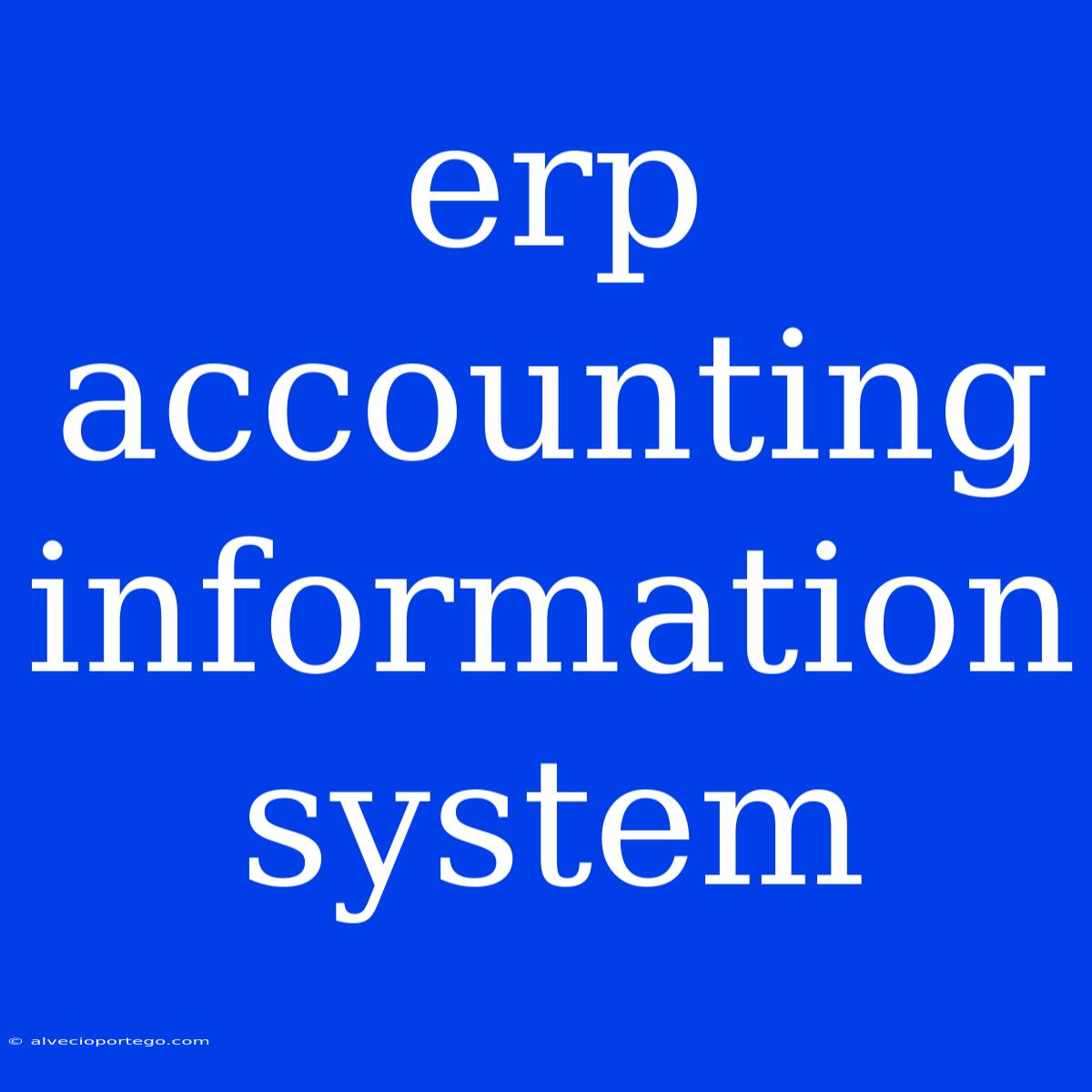ERP Accounting Information Systems: Streamlining Your Business Operations
An Enterprise Resource Planning (ERP) system is a powerful software solution designed to integrate and manage various aspects of a business, including finance, inventory, human resources, and customer relationship management. ERP accounting information systems are a key component of this integrated approach, offering comprehensive features to streamline accounting processes, enhance financial reporting, and provide valuable insights for decision-making.
Benefits of an ERP Accounting Information System
Integrating accounting functionality within a wider ERP system offers numerous advantages:
1. Real-Time Data and Visibility:
- Centralized Data: ERP systems consolidate data from different departments, providing a single source of truth for accounting information. This eliminates data silos and inconsistencies.
- Real-Time Insights: Access to real-time data allows for instant analysis of financial performance, cash flow, and inventory levels.
- Improved Accuracy: Automated data entry and reconciliation minimize manual errors and ensure data accuracy.
2. Automated Processes and Efficiency:
- Automated Transactions: Automating tasks such as invoice processing, purchase order creation, and bank reconciliation significantly reduces manual effort and processing time.
- Streamlined Workflows: ERP systems define clear workflows for accounting processes, ensuring consistent application of policies and procedures.
- Increased Productivity: Automation and streamlined workflows free up accountants to focus on high-value tasks such as analysis and reporting.
3. Enhanced Financial Reporting and Analysis:
- Comprehensive Reporting: ERP systems offer robust reporting capabilities, allowing users to generate customized financial statements, budgets, and performance dashboards.
- Data-Driven Decisions: Real-time data and comprehensive reporting facilitate informed decision-making based on accurate financial insights.
- Improved Compliance: ERP systems support compliance with accounting standards and regulations, ensuring financial accuracy and transparency.
4. Better Control and Security:
- Access Control: ERP systems provide granular access control, allowing users to view and modify data based on their specific roles and responsibilities.
- Auditing Trail: Comprehensive auditing trails track all data modifications, providing a clear record of financial transactions for internal and external audits.
- Data Security: ERP systems employ robust security measures to protect sensitive financial data from unauthorized access and cyber threats.
Key Features of ERP Accounting Information Systems
- General Ledger: A centralized system to record all financial transactions, including revenue, expenses, assets, liabilities, and equity.
- Accounts Payable: Manage vendor invoices, payment schedules, and reconciliation.
- Accounts Receivable: Track customer invoices, payments, and outstanding balances.
- Cash Management: Monitor cash flow, track bank balances, and manage cash forecasting.
- Financial Reporting: Generate customized financial statements, budgets, and management reports.
- Tax Compliance: Manage tax calculations, filing requirements, and reporting.
Considerations When Choosing an ERP Accounting Information System
- Business Size and Complexity: The complexity of the ERP system should align with the size and specific requirements of your business.
- Industry Specific Features: Select an ERP system that offers industry-specific features relevant to your business operations.
- Scalability and Flexibility: Ensure the ERP system can scale with your business growth and adapt to future changes.
- Implementation Cost and Timeframe: Consider the cost of implementing and customizing the ERP system, and the time required for a successful rollout.
- Integration with Existing Systems: The ERP system should seamlessly integrate with your existing accounting software, CRM, and other business systems.
Conclusion
Implementing an ERP accounting information system can significantly enhance the efficiency, accuracy, and control of your financial processes. By providing real-time data, automation, and powerful reporting capabilities, ERP systems empower businesses to make informed financial decisions and achieve sustainable growth.

